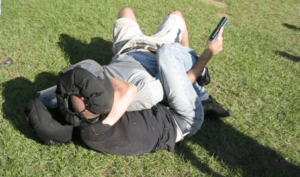The fundamental focus of both my own training as well as any course I teach is to start with a “worst case scenario” approach to the problem. That tends to be somewhat unique.
Most of the time in the training community – whether gun focused or martial art centric – there is a tendency to train for most optimal situations or to assume that the attacker is of the lowest common denominator type. This usually manifests itself with an obsession with things like pre-emptive striking or having your hand already on your gun, or planning on the attacker quitting at the first bit of offense from the good guy.
Now, don’t misconstrue what I am saying. All those things are more than possible. Is there a time when you are prepared for the attack because your pre-fight threat containment strategies were working at 100%? Sure, and you can throw that awesomely cool preemptive hammerfist, or that you will be able to start with your hand on that j-frame in your pocket, or that the bad guy runs screaming as soon as he realizes you are willing to resist. Those things certainly happen. SOMETIMES. Often, the exact opposite happens and we are taken by surprise and cannot be prepped to do our counter attack, and many times the guy assaulting us is a violent criminal actor who thrives on violence and is used to and is inured to combat and instead of fleeing, he doubles down on the attack.
The problem is that if we have spent our training time based on favorable assumptions and those assumptions are shattered and not present, we will suffer, badly. Perhaps even die.
Here is the advantage to spending most of your training time under worst case scenarios. You are far more likely to prevail when it is just such a situation, but if it ends up being one of the more optimal times, then your results are even easier. Building the ability to fight against someone who is trained and dedicated to making you lose allows you to deal with exactly that, but gives you a large margin of error against the lowest common denominator attacker. Maybe the criminal is 3 yards away and moving towards me with a knife in his hand and I can easily put rounds into his upper chest, but if he is farther away, say 20 yards, with a gun threatening my family and the only target he presents is his head, and I have never shot at anything smaller than a B27 at 5 yards, I stand to blow that shot. On the other hand, if I have tested myself by shooting B8s at 25 yards and I can consistently hit in the black, any closer shot is cake.
I want to stack the odds in my favor as much as possible with limited training time. I want to suffer as much in training as possible so when it comes time to fight, everything is as close to easy as I can make it. I cannot afford to waste a moment on an easy scenario when I leave myself vulnerable to the hard scenarios. Train for the worst case, and you are also prepared for the far easier one, but the reverse is not true.


